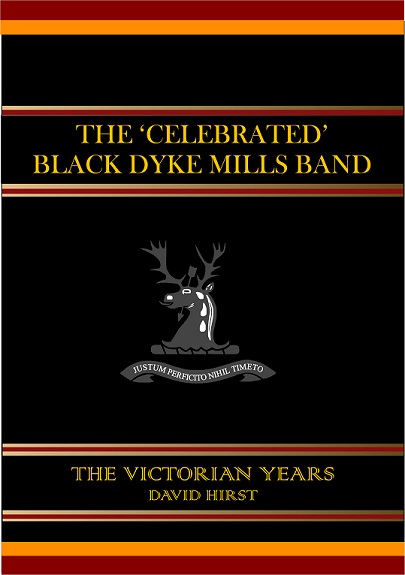

At the time of Queen Victoria’s accession in 1837, the precursor to what was to become the Black Dike Mills Band existed as a hybrid brass and reed ensemble based in a local public house.
By the time she died in 1901, it had become the pre-eminent brass band of the era – and beyond.
In the 63 years of her reign its fortunes mirrored that of Britain’s ascent to becoming the world’s leading mercantile power; the products of John Foster & Sons of Queensbury sold across every part of the pink coloured outposts of Empire after winning Gold Medals at the 1851 Great Exhibition at Crystal Palace.
Philanthropy
The wealth it had created allowed the band’s owners to indulge in a form of civil philanthropy - the vestiges of which still dominate the village’s landscape today. The crowning glory was to be the Black Dike Mills Band.
Formed in 1855, its history has been documented before – some more successful than others. None though has explored its formative metamorphosis in such detail as David Hirst.
Formed in 1855, its history has been documented before – some more successful than others. None though has explored its formative metamorphosis in such detail as David Hirst.
A former player, resident conductor and administrator, he played a central role in the creation of the Black Dyke Heritage Centre which now occupies the top floor of the famous bandroom which they have occupied since their formation.
His meticulous research (noted and referenced) is backed by context and consideration for the reader (including the use of the spelling of the band’s name).
The timeline unfolds clearly; the dry statistics of contest appearances backed by engaging pen portraits of leading figures of the Victorian banding movement, players and conductors, as well as insight into wider spheres – from instrument and contest development to repertoire and local history.
Cordwainers
Little gems of information shine out from the 181 pages; from the first green coloured uniforms and an early form of criteria based adjudication, to the names and occupations of the players who represented the band at the famous 1860 Sydenham contests – Longbottom, Rushworth, Firth and Halliday – warp dressers, wool sorters and cordwainers.
Little gems of information shine out from the 181 pages; from the first green coloured uniforms and an early form of criteria based adjudication, to the names and occupations of the players who represented the band at the famous 1860 Sydenham contests – Longbottom, Rushworth, Firth and Halliday – warp dressers, wool sorters and cordwainers.
He adds character and personality to the legendary performers and musicians of Black Dike’s history and sheds new light on a brass banding culture that was eventually to be consolidated with a mix of Victorian entrepreneurship and bureaucracy – although its standardisation was regulated without ever quite losing the more feral aspects of excitable contesting behaviour.
Do Right and Fear Nothing
At its heart is the band – at times sparkling in ascendency, but also at others beset by troubles and disappointments all too familiar to the top level competitors of today.
None though have survived or proposed to such an extent as Black Dyke, and David Hirst’s thorough research has enabled us to find out just why (and hopefully he will go on to explore the Edwardian era).
In 1856, just a year after the band was formed, the Foster family was granted its armorial coats of arms. The motto ‘Justum Perficito Nihil Timeto’ – ‘Do Right and Fear Nothing’ was a maxim they sought to live up to in full.
Ever since, the ‘celebrated’ band that they created has also done the same.
Iwan Fox
To purchase:
Contact: http://kirkleesmusic.co.uk/









